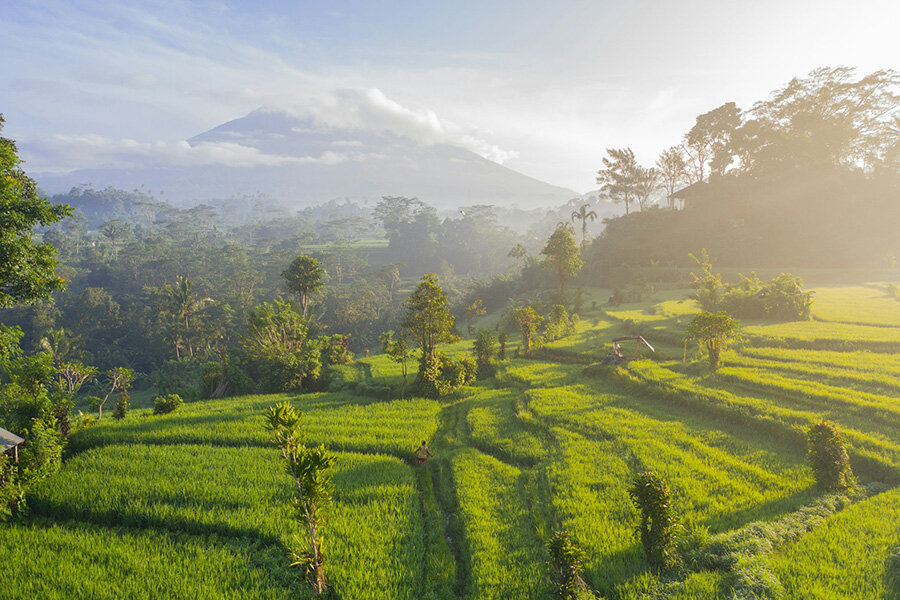Bali Bans Construction of New Hotels and Restaurants from 2026

Photo: Unsplash
Starting in 2026, Bali will prohibit the construction of new hotels and restaurants in six districts. The agreement was signed by Governor Wayan Koster and local regional leaders. The goal is to protect agricultural land from overdevelopment and concentrate tourism infrastructure in Bali’s central and southern zones, according to The Bali Sun.
Back in 2024, the authorities proposed a complete ban on tourism development, including hotels, villas, and clubs in Denpasar, Badung, Gianyar, and Tabanan. The proposal was submitted to Indonesia’s Ministry of Maritime Affairs and Investment, which responded favorably. At that time, moratorium periods ranging from two to ten years were discussed but never finalized.
As of 2023, Bali had 541 hotels—more than double the 249 reported just 11 years earlier. Authorities have reported numerous construction violations, often involving foreign investors. In 2024, Bali had around 200,000 foreign residents. Officials warned of negative impacts on crime rates and job competition.
The new regulation affects the districts of Tabanan, Jembrana, Buleleng, Bangli, Karangasem, and Klungkung. However, no restrictions will apply to the popular tourist hubs of Badung (Canggu, Uluwatu, Seminyak, Kuta, Legian, Nusa Dua) and Gianyar (Ubud), as well as Denpasar, which will remain the island’s main zones for accommodation and hospitality development.
Governor Koster emphasized that the purpose of the agreement is to preserve the balance between economic growth and natural resources, prevent land misuse, and ensure tourism revenues benefit the broader population. The six protected districts will focus on attractions and eco-tourism routes, while new hospitality projects will continue in the designated urban areas.
Starting in 2026, 10% of hotel and restaurant tax revenue collected in urbanized zones (known as Sarbagia: Denpasar, Badung, Gianyar, and Tabanan) will be redistributed to the six protected districts. This policy is expected to generate around 700 billion IDR per year (~$43 million). Funds will be allocated to infrastructure projects such as roadworks, bridges, and public space improvements. The use of these funds for private vehicle purchases or non-productive purposes will be prohibited.
The remaining funds will be distributed under the BKK special assistance program, which considers district size, population, and road conditions.
Governor Koster assured that fund distribution will be fair and apolitical:
“Even if the opposition governs in Karangasem, they will receive their share. My mission is to develop Bali fairly,” he stated.
Earlier, the governor announced the formation of a special task force to detect foreign-owned businesses operating without proper licenses. In Badung alone, there are an estimated 400 tourism-related firms formally owned by foreigners but lacking physical offices and local staff. All businesses will now be required to register with official associations and undergo verification. Particular attention will be paid to “phantom” companies using local nominee shareholders for illegal activity.
Additionally, since August 2025, foreigners can pay the Bali Tourism Tax Levy (150,000 IDR or ~$10) not only online but also directly at hotels, restaurants, and tourism sites. Businesses are offered a 3% incentive to assist in tax collection.
“We don’t expect businesses to work for free,” said Koster. “We’ve signed agreements with hotels and tourism players, and many are eager to participate. This will increase actual state revenue.”
Bali is tightening rules for foreigners in tourism and construction—including arrests for illegal building and breaches of local law. In recent years, fines and deportations have been issued for ignoring Balinese customs and legal procedures. Officials believe these changes will help combat chaotic development, protect green zones, and reduce land speculation and resource strain.








